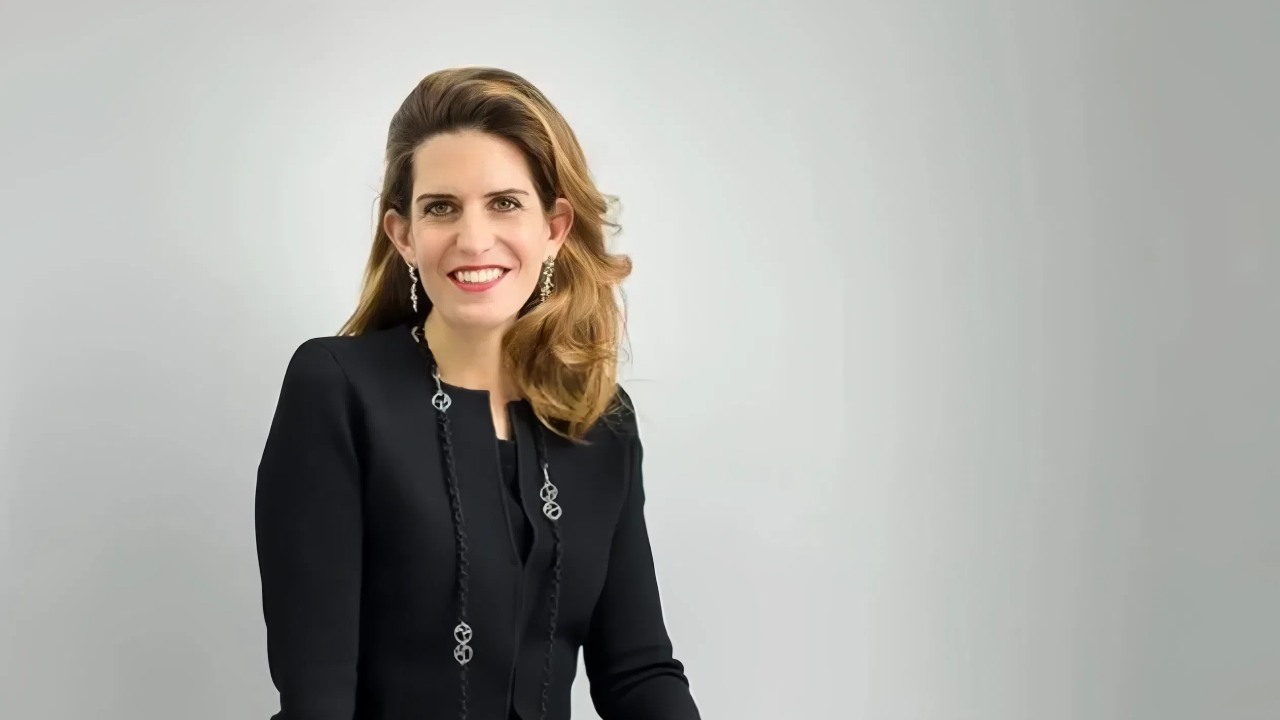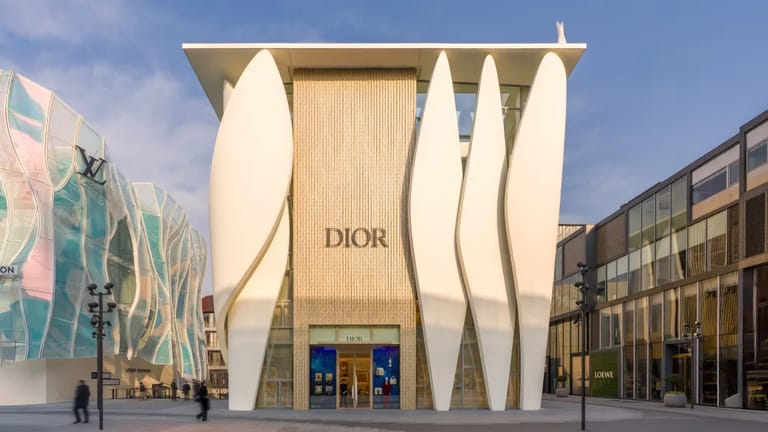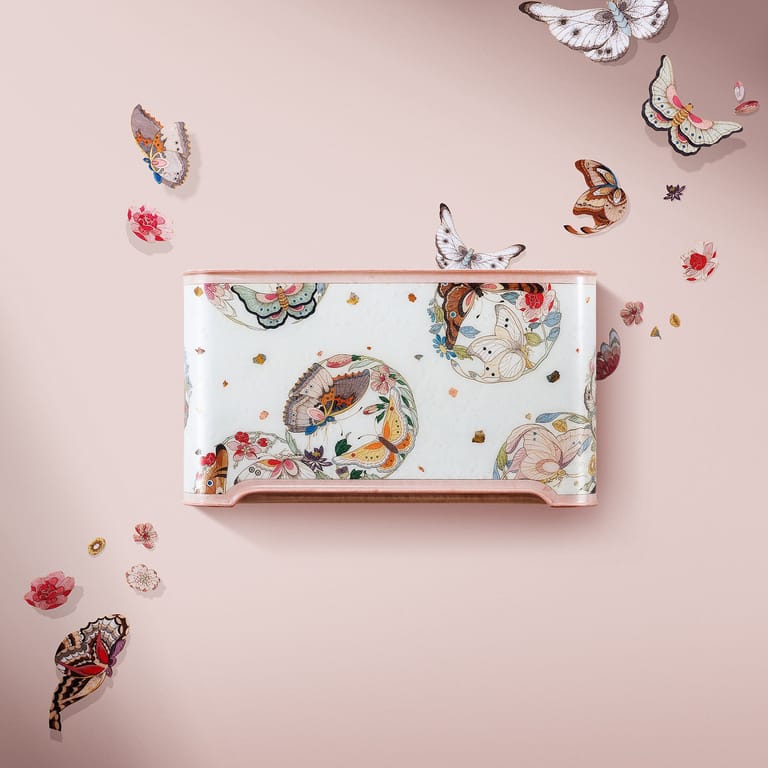Chloé Reuter on Redefining Luxury Branding: Insights into China’s Evolving Market
By
Wenzhuo Wu

Published on
February 26, 2025

The Visionary profiles the individuals redefining creativity and leadership in China’s evolving landscape—from fashion and art to technology and business. Through in-depth interviews and sharp analysis, this column unveils the minds driving innovation, exploring their inspirations, challenges, and the lasting impact of their work. These trailblazers aren’t just keeping pace with change; they’re leading it.
For over two decades, Chloé Reuter played a pivotal role in shaping luxury brand strategy in China, advising brands seeking to navigate one of the world’s most dynamic and competitive markets. Now based in Europe, Reuter reflects on her transformative journey and the lessons learned throughout her career in luxury branding, particularly regarding the evolving landscape in China.
Reuter’s career began in the bustling environments of Shanghai, Beijing, and Hong Kong, where she founded Reuter Communications. After building the agency over more than a decade, she sold it to branding and technology firm Gusto Collective, becoming a Founding Partner before fully exiting the company in 2024. In these influential roles, she played a crucial part in crafting the branding strategies of various luxury players in China, navigating the complex interplay of culture and market demands. But after two decades, Reuter made a significant transition—relocating to Europe. She describes the change as “eye-opening,” especially regarding the pace of business.
“In China, everything moves fast. There’s an urgency in everything, a culture of quick responses, especially with tools like WeChat. That’s what drives speed in the market,” she says. “Coming to Europe, the pace is slower. People value personal time, and that’s been an adjustment.”
However, Reuter sees this difference as a double-edged sword. While the efficiency of Chinese business culture fueled her entrepreneurial success, the slower pace in Europe has provided a new perspective. “China’s growth didn’t happen by accident. The entrepreneurial spirit is unparalleled there, and I think it’s what makes China a unique force in the global economy,” she explains.
Entrepreneurship in China: A Rollercoaster Journey
Reuter’s entrepreneurial journey is marked by resilience and ambition, punctuated by emotional highs and lows as she navigated the complexities of founding and running businesses in China. “It was a rollercoaster. There were moments I thought, ‘What am I doing?’ But I’ve never regretted it,” she admits. “The most important lesson was learning that anything is possible if you keep pushing forward.”
A key factor that Reuter attributes to her success in China was the support system she had at home. “As a mother, being an entrepreneur in China was far easier than it would have been in Europe. I had help at home, something I might not have been able to afford elsewhere,” she says. “In China, the infrastructure for working women was more supportive, and that helped me balance work and family.”
When working with international luxury brands looking to break into the Chinese market, Reuter constantly reminded them that China’s luxury landscape was unique—one that didn’t adhere to the traditional codes of luxury in Europe and the U.S. “In the West, luxury has always been about heritage, exclusivity, and waiting for something special. In China, luxury is younger, more accessible, and often faster-moving,” she explains. This difference in approach has been key in helping brands tailor their strategies to a Chinese audience with distinct cultural and social contexts.
Leading with Kindness and Integrity
For Reuter, leadership transcends mere outcomes; it embodies empathy and accountability towards the people you lead. From the beginning of her career, she was struck by the lack of kindness in leadership roles, particularly in the corporate world. “I saw too many leaders who were rude, had bad tempers, and didn’t treat their teams with respect,” she says. “I didn’t want to be like that.”
When she founded her own business, motivated by her experinces in previous roles, Reuter made a conscious effort to prioritize kindness and respect in her leadership style. “Kindness isn’t weakness,” she emphasizes. “Being kind is actually a sign of strength. It’s about respecting people, setting the tone for how you expect others to treat each other, and leading by example.”
Her leadership philosophy is built on empathy and respect for all individuals, from team members to external partners. “In business, we’re not saving lives. We’re in marketing and communications. So, let’s put things into perspective and treat each other with kindness,” she says. This approach, she believes, has not only fostered strong working relationships but also led to a loyal and motivated team.
The Rise of Women in Leadership
As a female entrepreneur in the male-dominated branding and marketing world, Reuter candidly acknowledges the challenges that women face. “I was very naive when I started, but I also believed in the power of hard work, positivity, and showing up,” she recalls. “You have to show up, work hard, and be present to earn respect.”
She credits much of her success to building a strong network and constantly leaning into opportunities. “Lean in, attend events, network, and don’t burn bridges. You never know when someone will come back into your life,” she advises. “And most importantly, always leave on a high note. Every experience, even if it wasn’t ideal, teaches you something.”
When asked about the future of women in leadership, Reuter is optimistic. “The more women lead businesses, the more we’ll normalize the idea of female leadership in every industry,” she says. “And for those who want to lead, the key is being yourself—showing up, being positive, and being ready to grow.”
A New Definition of Luxury
Reuter believes a new wave of consumerism is emerging as the luxury landscape evolves in China. This is encapsulated in the concept of jingzhi – a refined vision of luxury rooted in cultural authenticity, creativity, and talent. “Chinese consumers are no longer just following Western luxury codes. They’re defining luxury on their own terms,” she says. “Jingzhi is about embracing Chinese characteristics in luxury, making it sophisticated and uniquely Chinese.”
One example of this shift is the rise of Chinese brands like Songmont, a handbag brand that is capturing attention in both China and the West. “Many people in Europe didn’t realize that Songmont is Chinese,” Reuter says. “It’s a beautiful brand with a powerful story, and it’s resonating with European consumers. That’s a clear sign that China’s luxury brands are becoming globally competitive.”

Reuter is confident that this new wave of Chinese brands will dominate the local market and expand overseas. “The sophistication of Chinese brands is often underestimated,” she says. “These brands are not just playing catch-up. They’re creating their own benchmarks for what luxury should be today.”
The Future of Branding in China
Looking ahead, Reuter is deeply optimistic about the future of the Chinese market despite the complexities. “China is one of the most competitive markets, and there’s huge potential. But it’s shifting. There’s a polarization in consumer behavior now, with some still favoring global luxury, while others are embracing local Chinese brands,” she says.
Her advice to brands entering China in 2025? “Be locally relevant. It’s not enough to rely on a buzz-worthy campaign during Chinese New Year. The key is creating long-term connections with Chinese consumers through deep cultural understanding.”
As she embarks on a new business venture involving both investments and high-level advisory work, Reuter’s branding expertise and forward-looking approach to the Chinese market will continue to shape the next phase of luxury in the region. With her finger on the pulse of China’s evolving luxury landscape, Reuter has positioned herself not just as a participant but as a visionary leader poised to transform branding across cultures, inspiring future entrepreneurs to innovate and thrive.












